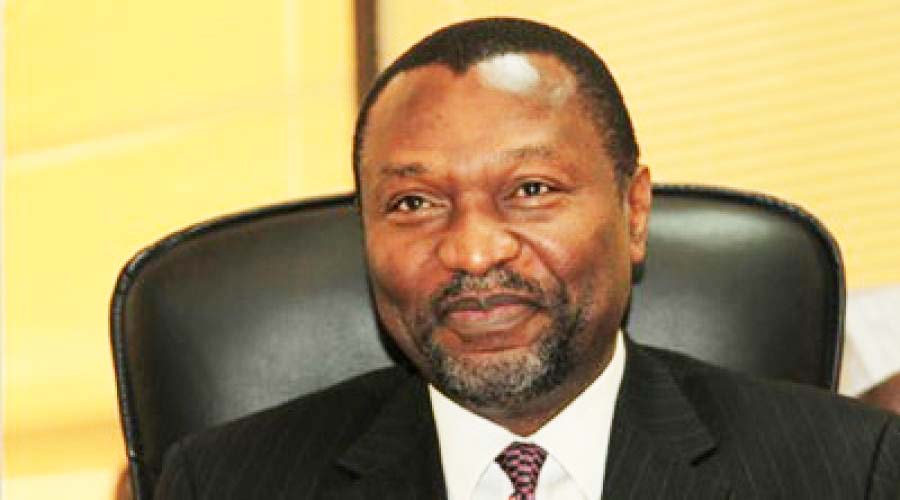Udoma Udo Udoma, Nigeria’s minister of budget and national planning, Thursday in Indonesia told a global audience that the implementation of the Economic Recovery and Growth Plan (ERGP 2017 – 2020), is moving Nigeria’s economy in a positive direction.
This is contained in a statement James Akpandem the special adviser (Media) to the minister
Udoma, who was speaking at the presentation of the International Monetary
Fund (IMF) Regional Economic Outlook Report for sub-Africa, said actions taken since the launch of the Plan in early 2017 have helped to build buffers and appropriate measures to safeguard the economy from any external shocks.
He recalled that following the collapse of crude oil prices from 2014, which culminated in the country’s economy sliding into recession in 2016, government developed a robust Medium-Term Plan – the ERGP, which was launched in early 2017, which focuses on five strategic areas: macroeconomic stability, economic
diversification and growth drivers, competitiveness, social inclusion and jobs, as well as governance and other enablers.
The minister said the positive trends recorded in the country’s economic indicators since the launch of the ERGP indicate that the Plan is working.
“We have been able to bring down inflation from 18.7 percent in January last year to
11.2 percent by August this year. Our aim is to bring inflation down to single digits by the end of the Plan period in 2020.
“The exchange rate market has been stabilized through the introduction of the investors’ and importers’ foreign exchange window. We have also been able to build up our external reserves from $27 billion in 2016 to $43.9 billion by early this month.
“Our current account, as a ratio of GDP, has moved from a deficit of 3.2 percent in
2015 to a surplus of 2.8 percent by end of last year. And this is built on export growth, including significant growth in non-oil exports, that has resulted in the
country recording a consistently positive trade balance since the fourth quarter
of 2016.
“The ERGP targets both oil and non-oil. With specific reference to the oil sector, it would be recalled that due to disruptions by militant activity, at some point in 2016, oil production was as low as 1 mbpd. Through positive engagements with the communities in the Niger Delta, we have improved the environment for oil production. Apart from technical hitches, from time to time, we are now able to produce up to 2 mbpd and take advantage of the more favourable international oil prices. Our target is to produce 2.3 mbpd,” he said.
He pointed out that the implementation of the various initiatives in the Plan resulted in moving the country’s economy out of recession to a positive growth path.
“Our GDP grew from -1.6% in 2016 to 1.5% by the second quarter of this year, with the non-oil sector growing at 2.05% – the highest growth in the sector since the fourth quarter of 2015”.
He was confident that the country’s growth projection of 2.1% by the end of the year would be realized, noting that the IMF’s projection for Nigeria is 1.9 percent this year, slightly lower than Nigeria’s projection. The minister however pointed out that given Nigeria’s growth for 2017, which was only 0.8 percent, even if Nigeria achieves the IMF projection of 1.9 percent this year, it is a significant improvement on the 2017 numbers.
The direction of movement in Nigeria is clearly very positive, he stressed, adding,
“As you have seen, these actions that we have taken have helped us to build buffers and appropriate measures to safeguard us from any external shocks.”
Referring to the recent IMF Report, which indicated that one of the downside risks to growth prospects in the sub-region is security, the minister said the Buhari
administration had long listed tackling security as one of its three policy thrusts.
“Government has been able to degrade the capacity of the Boko Haram insurgents and bring stability to the affected region. We are implementing a humanitarian response plan to resettle the victims and return them safely back to their homes. Schools have re-opened and farming and other activities are being restored,” he explained.
In addition, he said government is also shifting its domestic debt portfolio to longer-term maturities.
“Our external debt is primarily concessional borrowing, representing 54 percent of our external debt as at June 2018. Debt Sustainability Analysis is conducted annually to reaffirm that our Public Debt Stock is sustainable. In Nigeria, our borrowing is being utilized principally to fix our infrastructure.”
He also agreed with the IMF that appropriate policies are needed to enhance the resilience of the region from all forms of vulnerabilities, create more jobs for the rising youth population and raise per capita income. While the IMF Report projected that Sub Saharan Africa needs to create about 20 million jobs annually over the next decade to absorb its rising population, the Minister said the ERGP targets to create about 15 million jobs by 2020.
This, he explained, is intended to be achieved principally through the private
sector.
“Our aim is to make Nigeria a more investment friendly place, a more attractive place for people to do business. We conducted sector specific labs, what we referred to as the ERGP Focus Labs, to bring potential investors and government officials together to seek to remove the bottlenecks and impediments impeding investment projects. We identified over $22 billion of potential investments which could be unlocked, if we can remove some of these impediments.”
The minister said government is committed to implementing policies and programmes that promote social inclusion and deliver growth that is more diversified, inclusive and sustainable. “We also introduced the Social Investment Programme with annual allocations of N500 billion (equivalent of $1.6 billion) in each of our budgets since 2016.











